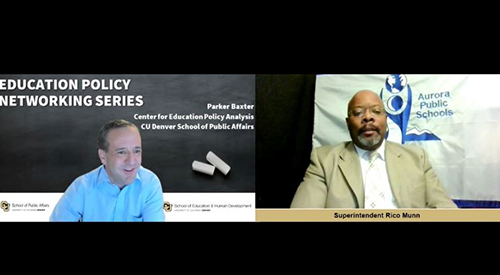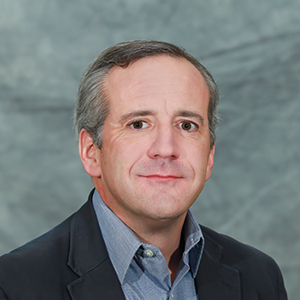Center for Education Policy Analysis
The Center for Education Policy Analysis (CEPA) works to improve public education by serving as a resource for education decision makers. We work with schools, districts, state and federal agencies, nonprofits and other universities to provide research and analysis on the issues facing public education.
Our services include program design and evaluation, quantitative and qualitative research, policy and legal analysis, planning and facilitation, and expert staffing for public commissions and processes.
CEPA is a member of the Education Policy Alliance, a university-based alliance of research centers.
New Research September 2024
- Leading for Equity and Student Growth: Lessons from the Transformation of the Denver Public Schools
CEPA Practitioner Perspectives Series
Tom Boasberg and United States Senator Michael Bennet - Study Summary
- Systemwide and Intervention-Specific Effects of Denver Public Schools’ Portfolio District Strategy on Individual Student Achievement
System-level Research on Denver Public Schools
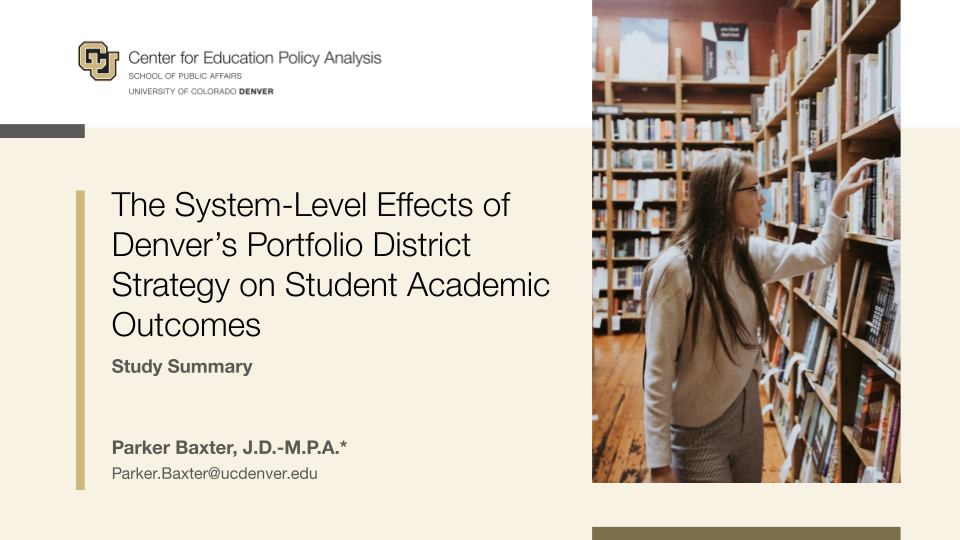
A new study conducted by researchers at the University of Colorado Denver School of Public Affairs Denver Public Schools' system-wide education reform strategy from 2008-2019. Co-authored by CEPA director Parker Baxter, SPA Dean and Distinguished Professor Paul Teske and Associate Professor Todd Ely, the study provides a comprehensive, system-level answer to the question of whether Denver's reform strategy led to improved academic outcomes for students.
Read a summary of the research findings.
Read the full technical report.
Watch a Video of the Research Discussion from Dec 6, 2022
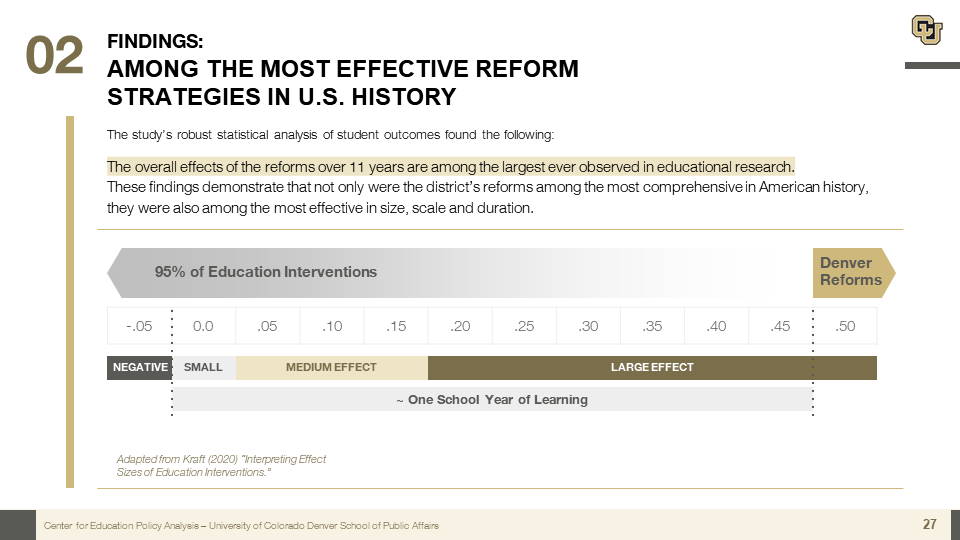
Featured Project: Elevating Family and Community Voice in Aurora Public Schools
For the past three years CEPA has partnered with the Center on Reinventing Public Education to consider a paradigm-shifting approach to family and community engagement efforts in school districts. Working with the Wend Collective, a locally-based nationally-focused foundation, the project launched with the ongoing Blueprint redesign in Aurora Public Schools (APS). As the pandemic struck, APS community engagement pivoted and expanded in response. This project seeks to respond in kind, exploring the essential questions of dynamics and structures for community voice in today’s public school systems. Learn more by reading the issue briefs below.
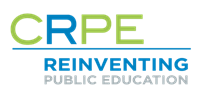


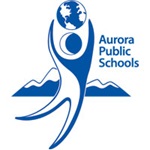

Issue Briefs
Transforming Systems from the Bottom Up: Co-Creating Change in Aurora, Colorado
The COVID-19 pandemic has shined a spotlight on the vital role that school systems play in supporting children, families, and communities and on the capacity of those systems to respond effectively and equitably to the needs of students. Modern school districts were built to meet the demands of exponential population growth, urbanization, diversification, and industrialization. Yet, as collections of individual schools, districts have since their inception struggled to balance the complexities of governing and operating multiple schools across multiple communities of multiple means and multiple demands. Even as they strive to meet our individual and collective aspirations, they also reflect our local and national failures.
Read the issue brief: Issue Brief 1 - January 2022
To be published later this year.
To be published later this year.
Events Archive
CEPA hosts the Education Policy and Networking Series. Co-sponsored by the School of Public Affairs and the School of Education & Human Development, this series provides a forum for emerging policy-savvy teachers and analysts, as well as education policy leaders. Visit our events page for more information.
District Leadership During A Pandemic (02-03-21)
As Colorado entered a second school year in a pandemic, schools and systems from coast to coast have been forced to figure out how to deliver a high-quality education and effectively address a multitude of student needs all while the nation struggles to fight a deadly disease. Systems were wrestling with many of these difficulties before the pandemic to be sure, but the virus caused a disruption of a different magnitude.
Superintendents are often said to have an impossible job, and that’s in normal times. Superintendent Rico Munn has led Aurora Public Schools (APS), Colorado’s fifth largest district, since 2013. APS is responsible for the education of more than 40,000 students, who come from more than 130 countries and speak 160 different languages. Nearly half of students speak English as a second language, and over 65 percent qualify for federally subsidized school meals. Although in-person classes have recently resumed, the district’s 65 school buildings were closed for much of the past year, many used for food banks as the district shifted to remote instruction.
Join the CU Denver School of Public Affairs and School of Education and Human Development for an in-depth conversation with Superintendent Munn about school district leadership during the pandemic.
